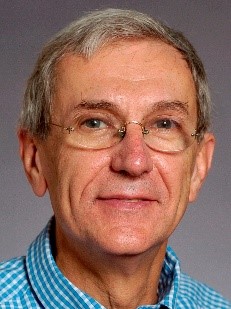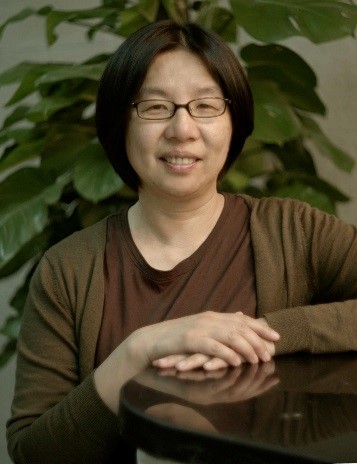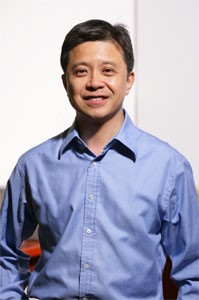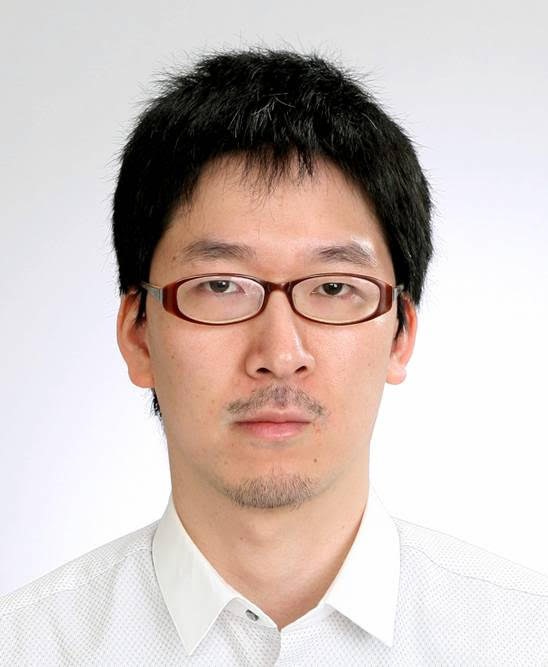APSIPA ASC 2018
Keynote Speeches

Tuesday, November 13, 09:00 - 10:00, Room 310
Chair: Anthony Kuh
Prof. José Moura
Dept. of Electrical and Computer Engineering, Carnegie Mellon University
Cities Through the Mobility Looking Glass
Over half the world population lives today in cities and urban population are expected to grow to 66% of the 9.7 billion humans in the planet by 2050. Many cities have adopted an open data policy, making available many diverse datasets, a great opportunity to develop new data analytics to help city managers and planners to better manage their resources and better design their cities. I will look at mobility, transit mobility that is, not social or economic mobility, in particular, we present a deep data analytics methodology to extract traffic density from low resolution city webcams and discuss how to scale-up our proposed solution to provide a broad high-spatial and high-temporal panorama of traffic mobility covering the whole metro area.
José M. F. Moura, is the Philip L. and Marsha Dowd University Professor at CMU, with interests in signal processing and data science. He invented (with Alek Kavcic) a detector found in at least 60% of the disk drives of all computers sold worldwide in the last 13 years (over 3 billion) – the subject of the recent US $750 Million settlement (February 2016) between CMU and Marvell, the largest settlement ever in the information technologies intellectual property area and 3rd largest overall. He is the 2018 IEEE President Elect. Moura received the CMU College of Engineering Distinguished Professor Award, the IEEE Signal Processing Society Technical Achievement Award and its Society Award. He is Fellow of the IEEE and of the American Association for the Advancement of Science, AAAS, corresponding member of the Academy of Sciences of Portugal, Fellow of the US National Academy of Innovators, and member of the US National Academy of Engineering.

Tuesday, November 13, 13:30 - 14:30, Room 310
Chair: Yih-Fang Huang
Prof. Bin Yu
Departments of Statistics and EECS, University of California, Berkeley
Three principles of data science: predictability, stability, and computability
In this talk, I'd like to discuss the intertwining importance and connections of three principles of data science in the title. They will be demonstrated in the context of two collaborative projects in neuroscience and genomics, respectively. The first project in neuroscience uses transfer learning to integrate fitted convolutional neural networks (CNNs) on ImageNet with regression methods to provide predictive and stable characterizations of neurons from the challenging primary visual cortex V4. The second project proposes iterative random forests (iRF) as a stabilized RF to seek predictable and interpretable high-order interactions among biomolecules.
Bin Yu is Chancellor’s Professor in the Departments of Statistics and of Electrical Engineering & Computer Sciences at the University of California at Berkeley. Her current research interests focus on statistics and machine learning theory, methodologies and algorithms for solving high-dimensional data problems. Her group is engaged in interdisciplinary research with scientists from genomics, neuroscience, and precision medicine.
She obtained her B.S. degree in Mathematics from Peking University in 1984, her M.A. and Ph.D. degrees in Statistics from the University of California at Berkeley in 1987 and 1990, respectively. She is Member of the U.S. National Academy of Sciences and Fellow of the American Academy of Arts and Sciences.
She was a Guggenheim Fellow in 2006, and the Tukey Memorial Lecturer of the Bernoulli Society in 2012. She was President of IMS (Institute of Mathematical Statistics) in 2013-2014 and the Rietz Lecturer of IMS in 2016.

Wednesday, November 14, 10:00 - 11:00, Room 310
Chair: Sadaoki Furui
Dr. Hsiao-Wuen Hon
Corporate Vice President
Microsoft Asia-Pacific R&D Group, Microsoft Research Asia
A Brief History of Intelligence
Intelligence is the deciding factor of how human beings become the most dominant life forms on earth. Throughout history, human beings have developed tools and technologies which help civilizations evolve and grow. Computers, and by extension, artificial intelligence (AI), has played important roles in that continuum of technologies. Recently artificial intelligence has garnered much interest and discussion. As artificial intelligence are tools that can enhance human capability, a sound understanding of what the technology can and cannot do is also necessary to ensure their appropriate use. While developing artificial intelligence, we also found out the definition and understanding of our own human intelligence continue evolving. The debates of the race between human and artificial intelligence have been ever growing. In this talk, I will describe the history of both artificial intelligence and human intelligence (HI). From the great insights of the such historical perspectives, I would like to illustrate how AI and HI will co-evolve with each other and project the future of AI and HI.
Dr. Hsiao-Wuen Hon is corporate vice president of Microsoft, chairman of Microsoft’s Asia-Pacific R&D Group, and managing director of Microsoft Research Asia. He drives Microsoft’s strategy for research and development activities in the Asia-Pacific region, as well as collaborations with academia. Microsoft Research Asia have had influence not only within Microsoft but also on the broader research community. MIT Technology Review named Microsoft Research Asia “the hottest computer lab in the world”.
Dr. Hon also founded and managed Microsoft Search Technology Center from 2005 to 2007 and led development of Microsoft’s search products (Bing) in Asia-Pacific. Prior to joining Microsoft Research Asia, Dr. Hon was the founding member and architect of the Natural Interactive Services Division at Microsoft Corporation.
An IEEE Fellow and a distinguished scientist of Microsoft, Dr. Hon is an internationally recognized expert in speech technology. Dr. Hon has published more than 120 technical papers in international journals and at conferences. He co-authored a book, Spoken Language Processing, which is a graduate-level textbook and reference book in the area of speech technology used in universities around the world. Dr. Hon holds more than 40 patents in several technical areas.
Dr. Hon received a Ph.D. in Computer Science from Carnegie Mellon University and a B.S. in Electrical Engineering from National Taiwan University.

Thursday, November 15, 10:00 - 11:00, Room 310
Chair: Hsueh-Ming Hang
Dr. Shinji Watanabe
Electrical and Computer Engineering, Johns Hopkins University
End-to-End Speech Processing: From Pipeline to Integrated Architecture
Recently, the end-to-end automatic speech recognition (ASR) paradigm has attracted great research interest as an alternative to the conventional hybrid framework of deep neural networks and hidden Markov models. Using this novel paradigm, we can simplify the conventional ASR pipeline architecture by integrating such ASR components as acoustic, phonetic, and language models into a single neural network and optimize the whole system for the ultimate ASR objective: generating a correct label sequence. This talk introduces extensions of the basic end-to-end architecture to tackle major problems faced by current ASR technologies in adverse environments including multilingual, multi-speaker, and distant-talk conditions. For multilingual issues, we fully exploit the end-to-end ASR advantage of eliminating the need for linguistic information such as pronunciation dictionaries, and build a monolithic multilingual ASR system with a language-independent neural network architecture, which can recognize speech in 10 different languages. We also extend the framework to deal with multi-speaker ASR, where the system directly decodes multiple label sequences from a single speech sequence by unifying source separation and speech recognition functions in an end-to-end manner. Finally, we propose a unified architecture to encompass microphone-array signal processing such as a state-of-the-art neural beamformer within the end-to-end framework. This architecture allows speech enhancement and ASR components to be jointly optimized to improve the ASR objective and leads to an end-to-end framework that works well in the presence of strong background noise.
Shinji Watanabe is an Associate Research Professor at Johns Hopkins University, Baltimore, MD, USA. He received his B.S., M.S. PhD (Dr. Eng.) Degrees in 1999, 2001, and 2006, from Waseda University, Tokyo, Japan. From 2001 to 2011, he was a research scientist at NTT Communication Science Laboratories, Kyoto, Japan. From January to March in 2009, he was a visiting scholar in Georgia institute of technology, Atlanta, GA, USA. From January 2012 to June 2017, he was a Senior Principal Research Scientist at Mitsubishi Electric Research Laboratories (MERL), Cambridge, MA, USA. His research interests include automatic speech recognition, speech enhancement, spoken language understand, and machine learning for speech and language processing. He has been published more than 150 papers in top journals and conferences, and received several awards including the best paper award from the IEICE in 2003. He served an Associate Editor of the IEEE Transactions on Audio Speech and Language Processing, and is a member of several technical committees including the IEEE Signal Processing Society Speech and Language Technical Committee and APSIPA Speech, Language, and Audio Technical Committee.